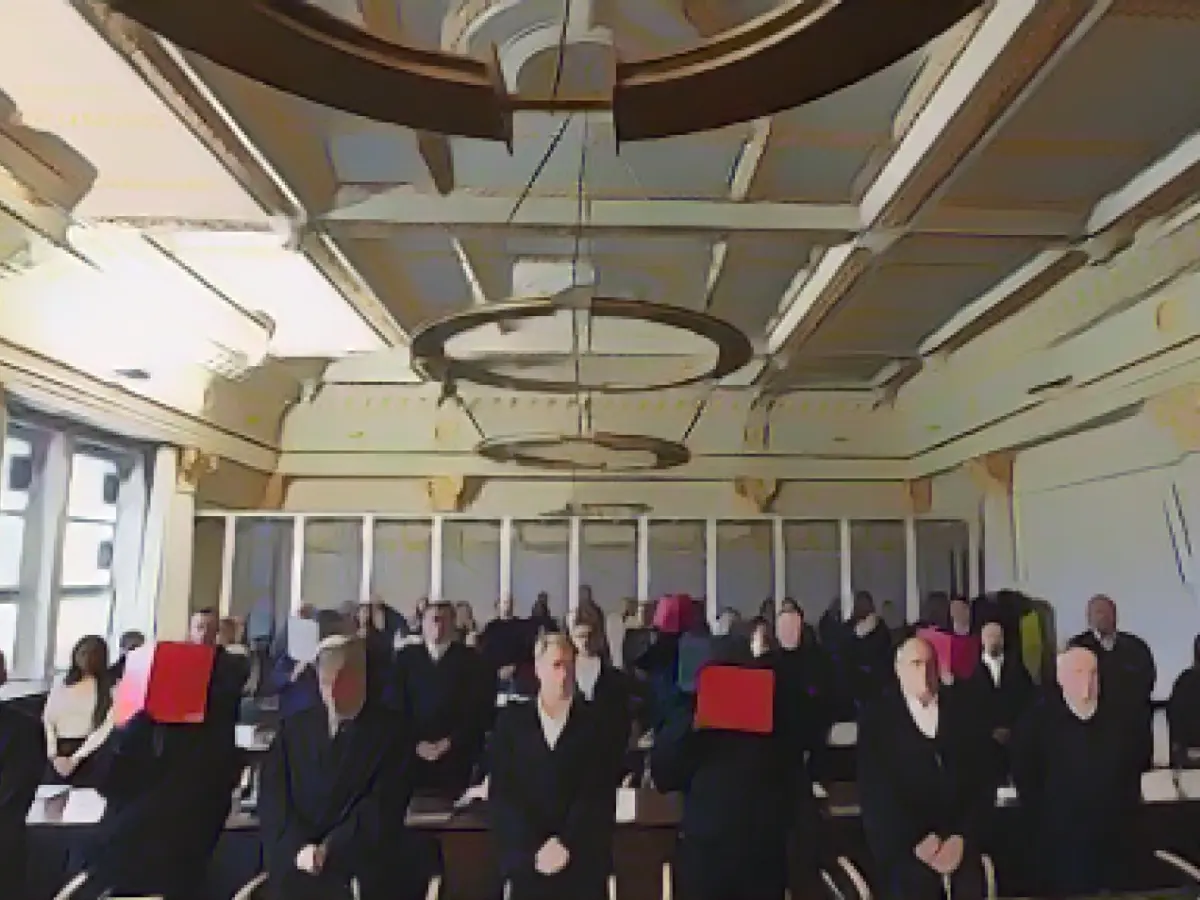Young Offenders in Hamburg's Courts Receive Lenient Sentences Most of the Time
If a young adult under 21 commits a crime in Hamburg, they are typically charged under juvenile criminal law. In 2022, the courts in Hamburg found 501 young individuals guilty, with juvenile law accounting for 87% of the cases, as announced by the Senate in response to a CDU inquiry. This is a stark contrast to the national average, which saw only 61% of defendants aged 18-21 sentenced under adult criminal law, according to the Federal Statistical Office's data from 2021.
The application of juvenile law is governed by the Juvenile Courts Act, which calls for the sentencing of individuals based on their moral and mental development at the time of the offense. Additionally, the law applies to offenses considered "juvenile" in nature. The focus of juvenile law is not punishment or compensation but rather the prevention of further offenses, aiming to rehabilitate the young person and steer them away from criminal activity.
The CDU inquiry was sparked by the trial concerning the gang rape of a 15-year-old girl in Hamburg's Stadtpark. The regional court sentenced nine defendants, all under juvenile law, with one exception: a 19-year-old who received a harsher sentence of two years and nine months without parole, given that he was still a minor at the time of the crime.
CDU parliamentary group leader Dennis Thering voiced concerns about the high proportion of young adults being kept within the juvenile justice system in Hamburg, stating that it was questionable if these individuals were "adequately mentally developed" compared to their counterparts in other German states. Thering called for either strengthening school curriculums and youth welfare services or amending the Juvenile Courts Act at a federal level to address the discrepancy in sentencing practices.
The Philosophy Behind Juvenile Law in Germany
Exploring the nuances of the Jugendgerichtsgesetz (JGG) and its impact on young adults in Germany
The application of juvenile criminal law in Germany is guided by the Juvenile Courts Act, enacted in 1923. The Act emphasizes the principle of "Erziehung" (guidance) to rehabilitate young adults, focusing on educational measures rather than punishment. Three primary factors are considered when determining whether juvenile law should be applied:
- Social instability: After World War I, Germany saw a surge in youth crime due to social instability, particularly among the Vaterlosegeneration (fatherless generation).
- Rehabilitation: The JGG prioritizes rehabilitation through educational measures, recognizing the unique challenges faced by young adults and aiming to provide guidance rather than punishment.
- Age considerations: The law considers "Heranwachsende" (young adults aged 18-21) differently from adults, reflecting a nuanced approach to their developmental stage.
Reasons Behind Hamburg's High Rate of Juvenile Sentencing
Exploring potential reasons behind the higher juvenile sentencing rate in Hamburg compared to the national average
Hamburg's higher rate of juvenile sentencing compared to the national average can be attributed to a variety of factors:
- Social and economic challenges: Hamburg, like other major cities, grapples with social and economic issues that contribute to higher rates of juvenile delinquency, such as poverty, family instability, and a weak community support system.
- Protest-related violence: Hamburg experienced significant protests and violent clashes during the G20 Summit in 2017, leading to a higher incidence of juvenile-related crimes and subsequent sentencing.
- Law enforcement and judicial practices: Local law enforcement and judicial practices play a role in the city's approach to juvenile justice. For instance, the city's response to protests and the handling of juvenile offenders may be more stringent than in other regions, potentially contributing to higher sentencing rates.
In conclusion, the justice system in Hamburg presents unique considerations when it comes to the sentencing of young adults. Understanding the nuances of juvenile law, the factors causing Hamburg's higher rate of juvenile sentencing, and the potential consequences of this approach are crucial to moving forward in promoting safer communities and ensuring fair and effective justice for young individuals.
Sources:
Enrichment Data
- Factors Considered in Determining Juvenile Criminal Law in Germany
- Why Hamburg Has a Higher Rate of Juvenile Sentencing Compared to the National Average








